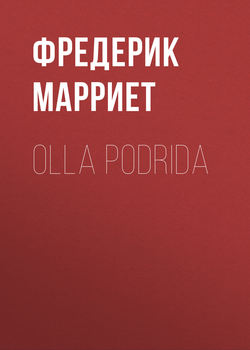Читать книгу Olla Podrida - Фредерик Марриет - Страница 4
Chapter Four
ОглавлениеOstend, April 18, 1835.
I was confoundedly taken in by a rascal of a commissionnaire, and aware how the feelings of travellers are affected by the weather or the treatment they receive at any place they may pass through, I shall display the heroism of saying nothing about the place, except that I believe Ostend to be the most rascally hole in the world, and the sooner the traveller is out of it so much the better will it be for his purse and for his temper.
April 19.
It has been assumed as an axiom that every one in this world is fond of power. During our passage in the track-schuyt I had an evidence to the contrary, for as we glided noiselessly and almost imperceptibly along, a lady told me that she infinitely preferred the three-horse power of the schuyt to the hundred-horse power of the steam-packet. We arrived at Bruges, escaping all the horrors and difficulties of steam navigation.
House rent at Bruges is cheap, because one half of the houses are empty—at least that was the cause assigned to me, although I will not vouch for its being the true one. The reader may remember that this was the site of cheap peaches, but none met our sight, the trees not being yet in blossom. I ought to observe, for the satisfaction of the Foreign Bible Society, that at the hotel at Bruges I saw a book of their exportation lying on the chimney-piece in excellent preservation.
April 21.
As to what passed on our canal voyage to Ghent, I can only say that every thing passed us—for the roads were very heavy, the horses very lazy, and the boys still lazier—they rode their horses listlessly, sitting on them sideways, as I have seen lads in the country swinging on a gate—whereby the gait of the track-schuyt could not be styled a swinging pace. We did arrive at last, and thus ended our water carriage. At Ghent we went to the Hôtel Royal, from out of the windows of which I had a fine view of the belfry, surmounted by the Brazen Dragon brought from Constantinople; and as I conjured up times past, and I thought how the belfry was built and how the dragon got there, I found myself at last wandering in the Apocrypha of “Bel and the Dragon.”
We went to see the picture by Van Eck, in the cathedral of Saint Bovin. The reader will probably wish to know who was Saint Bovin—so did I—and I asked the question of the sacristan: the reader shall have the benefit of the answer, “Saint Bovin, monsieur, il était un saint.”
That picture of Van Eck’s is worth a van full of most of the pictures we see: it was Van Eck who invented, and was indeed the father of painting in oil. It is a wonderful production.
Mrs Trollope says that people run through Belgium as if it were a mere railroad to other countries. That is very true—we did the same—for who would stop at Ostend to be swindled, or at Bruges to look at empty houses, or at Ghent, which is nothing but a Flanders Birmingham, when Brussels and King Leopold, and the anticipation of something more agreeable, were only thirty miles off. Not one day was our departure postponed; with post-horses and postilions we posted post haste to Brussels.
